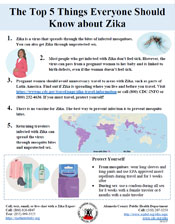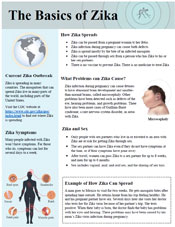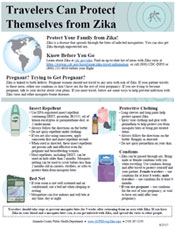Zika Basics
What is Zika?
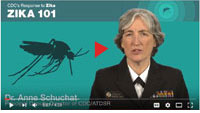 |
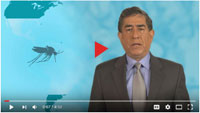 |
| Zika Virus 101 | Información básica sobre el virus del Zika (Español) |
- Zika virus is mostly transmitted to people by Aedes aegypti and Aedes albopictus mosquitoes. It can also be spread through unprotected sexual contact or mother-to-baby during pregnancy.
- Only 20% – 25% of people infected with Zika virus develop symptoms. For those who do, symptoms develop 3-12 days after being exposed to Zika virus and include fever, rash, joint pain, conjunctivitis (eye redness), muscle pain, and headache.
- There is currently no vaccine to prevent Zika Virus infection, or specific medicine to treat it. People who think they may be infected with Zika virus should talk to their healthcare provider.
- Once someone has been infected with Zika, it’s very likely they’ll be protected from future infections.
Why is Zika a Concern?
- Zika virus can be passed from a pregnant mother to her unborn baby during pregnancy. This can cause severe brain defects, including microcephaly (abnormally small head and brain) and other serious nervous system defects, such as hearing and vision problems. Find out more by visiting our Zika and Pregnancy page.
- Guillain-Barré Syndrome (GBS) is a rare but serious illness that may be more common in people who have been infected with Zika Virus. Find out more by visiting the CDC’s page on Zika and Guillain-Barré Syndrome.
Who is at Risk for Zika Virus Infection?
- People who live in or travel to areas where mosquitoes are actively spreading Zika are most at risk of infection. The CDC has up-to-date information on areas with risk of Zika transmission.
- Zika virus can also be spread sexually, so people who have unprotected sexual contact (vaginal, oral, anal, or by sharing sex toys) with a partner who traveled to an area with Zika virus transmission are at increased risk of infection.
How can Zika Virus Infection be Prevented?
Zika virus can be prevented by avoiding mosquito bites and by practicing safe sex with people who have recently traveled to areas where Zika virus is actively circulating. Visit our Travel and Prevention page to find out more about preventing mosquito bites and safe sex practices.


